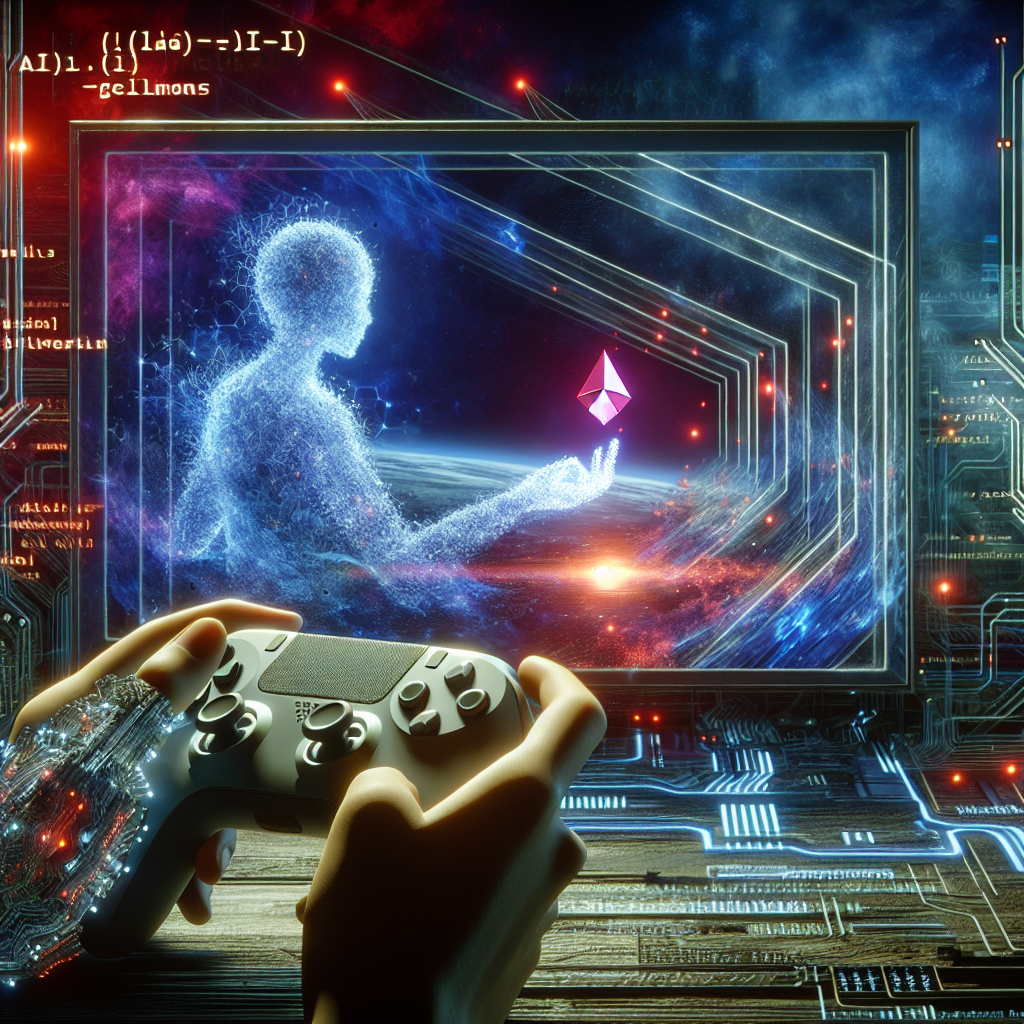AI-Powered Video Games: The Future of Gaming
In recent years, artificial intelligence (AI) has been making significant advancements in various industries, including the world of gaming. AI-powered video games are quickly becoming the future of gaming, offering players a more immersive and interactive experience than ever before. From intelligent NPCs to adaptive difficulty levels, AI is revolutionizing the way we play video games.
AI in Video Games
AI has been a part of video games for decades, with early AI algorithms being used to control enemy behavior and pathfinding in games. However, recent advancements in AI technology have enabled game developers to create more sophisticated and intelligent AI systems that can adapt to players’ actions and provide a more realistic gaming experience.
One of the key benefits of using AI in video games is the ability to create more dynamic and responsive NPCs (non-player characters). These NPCs can exhibit human-like behaviors, such as learning from their interactions with players and adapting their strategies accordingly. This not only makes the game more challenging and engaging for players but also creates a more immersive gaming experience.
AI-powered video games can also offer players personalized experiences by analyzing their gameplay habits and preferences. For example, AI algorithms can adjust the difficulty level of a game based on the player’s skill level, ensuring that the game remains challenging without becoming frustrating.
Another advantage of using AI in video games is the ability to create more realistic environments and animations. AI algorithms can generate lifelike character movements and behaviors, as well as dynamic environments that react to player actions in real-time. This can make the gaming experience more immersive and visually stunning.
AI-Powered Video Games: Examples
There are already several AI-powered video games on the market that showcase the potential of AI in gaming. One notable example is “The Last of Us Part II,” a critically acclaimed action-adventure game that features advanced AI algorithms that control enemy behavior and interactions. The enemies in the game exhibit realistic behaviors, such as flanking and calling for reinforcements, making the gameplay more challenging and unpredictable.
Another example is “Frostpunk,” a city-building survival game that uses AI algorithms to simulate the behavior of a group of survivors in a frozen wasteland. The AI-controlled citizens have their own needs and desires, and players must manage their resources and make difficult decisions to ensure their survival. The game’s AI system adapts to the player’s choices and actions, creating a dynamic and engaging gameplay experience.
AI-Powered Video Games: The Future of Gaming
The future of gaming is undoubtedly AI-powered, with developers harnessing the power of AI to create more immersive and intelligent gaming experiences. As AI technology continues to advance, we can expect to see even more innovative and groundbreaking AI-powered video games in the coming years.
One trend that is likely to become more prevalent in AI-powered video games is the use of machine learning algorithms to create more realistic and adaptive AI systems. Machine learning algorithms can analyze vast amounts of data and learn from player interactions to improve the behavior of NPCs and create more challenging and dynamic gameplay experiences.
Another potential application of AI in gaming is the use of natural language processing (NLP) algorithms to create more interactive and immersive storytelling experiences. By analyzing player dialogue and responses, AI algorithms can generate dynamic and personalized storylines that adapt to the player’s choices and actions.
AI-powered video games also have the potential to revolutionize multiplayer gaming experiences by creating more intelligent and adaptive opponents. AI algorithms can analyze player behavior in real-time and adjust the difficulty level of the game to provide a more balanced and engaging multiplayer experience.
FAQs
Q: Will AI-powered video games replace traditional video games?
A: While AI-powered video games offer a more immersive and interactive gaming experience, they are unlikely to replace traditional video games entirely. Traditional video games will continue to have a place in the gaming industry, offering a different kind of gameplay experience that appeals to a wide range of players.
Q: Are AI-powered video games more challenging than traditional video games?
A: AI-powered video games can be more challenging than traditional video games, as AI algorithms can adapt to the player’s actions and provide a more dynamic and unpredictable gameplay experience. However, the difficulty level of AI-powered video games can be adjusted to suit the player’s skill level, ensuring that the game remains challenging without becoming frustrating.
Q: How is AI technology used in video games?
A: AI technology is used in video games to control enemy behavior, pathfinding, and interactions, as well as to create more dynamic and responsive NPCs. AI algorithms can analyze player data and adapt to their actions, creating a more immersive and personalized gaming experience.
Q: What are the advantages of using AI in video games?
A: The advantages of using AI in video games include creating more dynamic and responsive NPCs, offering personalized gaming experiences, generating realistic environments and animations, and improving multiplayer gaming experiences. AI technology can enhance the overall gaming experience and provide players with more immersive and engaging gameplay.
In conclusion, AI-powered video games are the future of gaming, offering players a more immersive, interactive, and personalized gaming experience. With advancements in AI technology, we can expect to see even more innovative and groundbreaking AI-powered video games in the coming years. From intelligent NPCs to adaptive difficulty levels, AI is revolutionizing the way we play video games and shaping the future of the gaming industry.

